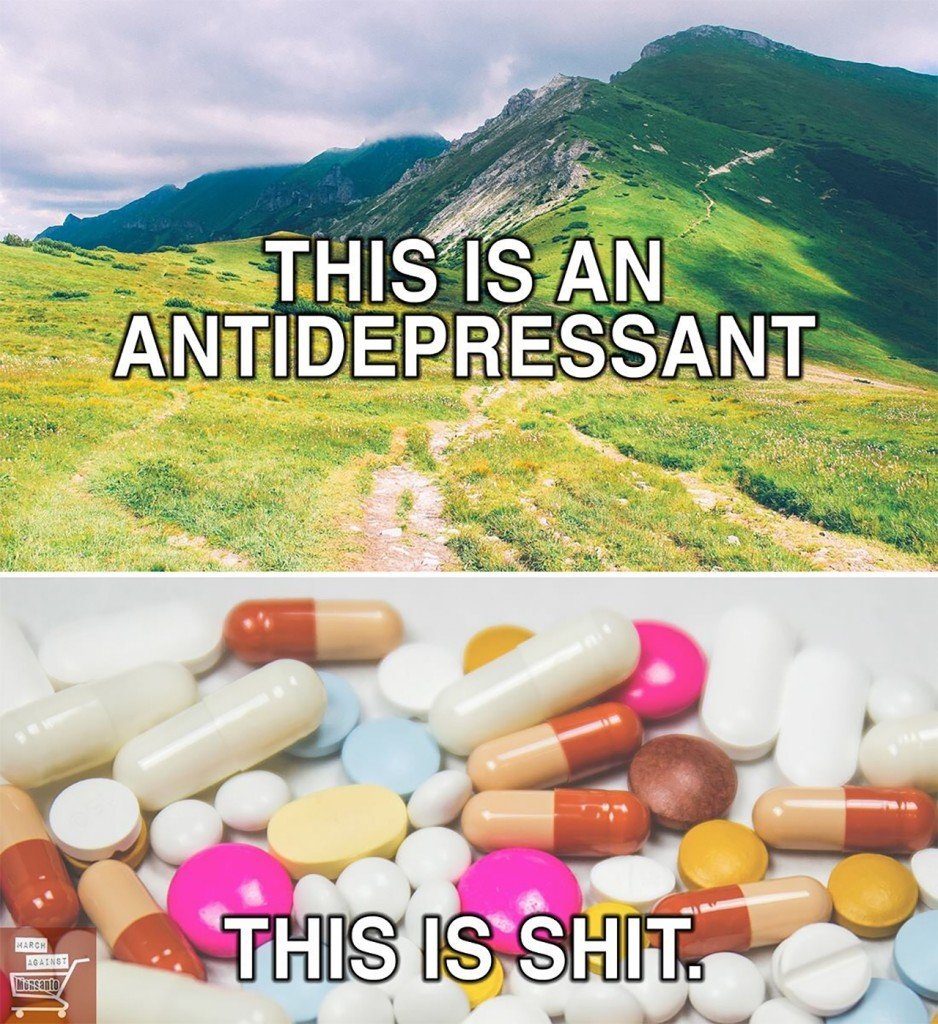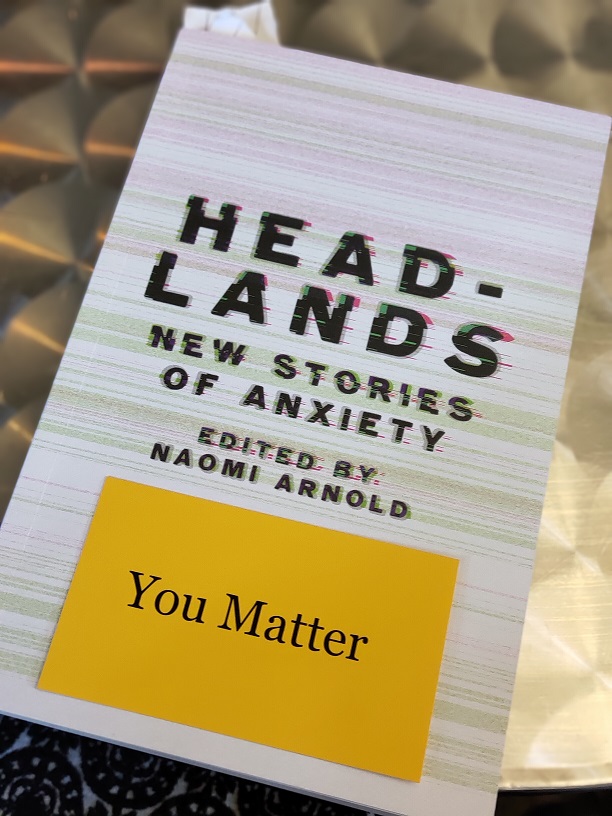‘Take your pills. Don’t take your pills. Read this self-help book. Call her emotional. Put Manic Depression on a mixtape and give it to her for Christmas.’
That’s a tiny excerpt from Susan Strongman’s essay in Headlands: New Stories of Anxiety. It’s like a grain of black pepper caught under your tongue, sharp-edged and eye-watering.
The essay – ‘Earnest PSA’ – follows a narrator who struggles to deal with the public perception and treatment of her anxiety disorder. She has intense panic attacks that render her desperate and wordless.
After a particularly bad episode, she makes a post on Facebook.
‘I have a mental illness – depression, which comes with a generous side of anxiety… This has been happening since I was a teen, and my closest friends know all about it. Some are still my friends, others aren’t. It’s not easy being friends with depression and anxiety. Especially if you don’t understand it.”
I’m sure it’s been obvious from the outside, but when I first started Writehanded, I was on a crusade. I’d gotten sick and I’d had to stop work and go on a benefit. I felt compelled, compulsive, obsessed with the need to tell people about my experience. I felt that no one understood, and everyone was judging me. I wanted to prove that I was different, that I was the exception to the public perceptions on people with disabilities and people on benefits. I stayed away from mental health, for the most part. It’s always been the last frontier for me, the biggest wall of fear.
I’m not the exception to these stigmas. Nor am I the rule. I listened to an interview with disability activist Carly Findlay last week who said the moment her life changed was when she realised she wasn’t the problem. Ableism was.
I knew that public perception – ableism – was a problem, but I couldn’t ungrip myself from it. It made me feel bad about myself, and so I needed to fight it. I publicised my life to try to educate others, which is incredibly vulnerable and exhausting, and you constantly feel like the only people who are listening are those who already agree.
I have never stopped feeling this pressure. Too unwell to face the weight of other people’s judgement, I sit in bed reading another #inspirational Facebook post about how “the only real disability is attitude,” another post about how you can cure yourself with diet, another post about how fresh air is better than any pill.

What’s shit is this sort of attitude
In October I went to a panel about mental health at the Nelson Arts Festival, featuring Headlands. It was a great discussion and I really appreciated being part of it.
However, I came home feeling dejected. While medication was rmentioned, it took a backseat to discussions about therapy, mindfulness, diet and exercise.
Let me be clear: I am in no way against those things. I do all of them, as and when they’re accessible to me. They are a valuable and in many cases vital part of maintaining mental health. But they are part of a whole suite of tools, which should be picked and chosen according to individual need and desire.
Images like the one above peddle something else entirely. They forcefeed public discourse with poison that suggests there’s only one way to be healthy, and any other way is, as they say above, “shit.”
This is not only wrong, it’s dangerous. Because it fosters shame in people who need medication. It fosters misinformation. It fosters fear. One way or another, it stops people who need medication from taking it, and that can be catastrophic.
I often quote the lines in the Clementine von Radics poem in the header image for this post. It is a powerful way to communicating nonjudgement, even pride. It encourages strength. The full piece goes like this:
Full lips. Good, strong hands.
You have 7 freckles on your back,
they map out the big dipper.
you carved in high school.
The first time you pulled off your t shirt
I traced the line with my fingers and fell in love
with your strength.
for living from that moment
to this one. You never need to apologize
for how you chose to survive
and if anyone else
were to kiss me, all they would taste
is your name.
– Clementine von Radics
I’m not sure if the word “chose” is right in all situations. How I am surviving right now is not so much about choice – apart from that I am choosing survival. I didn’t choose to have illnesses that require medication to manage. But I do choose not to suffer unnecessarily. And that right should be accorded to everyone.
I think we have a problem with evangelising suffering. Rather than empowering people to access the full list of options for getting help and helping ourselves, we are still, still, saying ‘harden up’. The image above isn’t about exercise or the comfort to be found in nature. It’s about demonising pills – the medication that that not only saves lives, but in many cases makes them livable in the first place.
I’ve written about this before, multiple times. I’ve written about opioids, about antidepressants, about chemotherapy. I’m not coming from a place of inexperience. I’ve had far more than I ever intended.
What I want is for people to be able to make informed choices. What I want is for people to feel ok taking medication if that’s what works for them. We cannot keep shaming people for accessing help.
We all need ways to survive. If you have a physical health condition or a mental illness, temporary or longterm, you do not need to suffer based on some sort of bizarre protestant work ethic. No one would expect someone in crippling physical pain to refuse morphine. And if you’ve never been in crippling emotional pain, I’m glad for you, but I’m here to say, suggesting I refuse my medication is saying I should choose the same level of anguish. And for what?
Later in Susan Strongman’s essay she worries about having written the Facebook post, and her intentions with. ‘She wants to tell people that it’s not okay to laugh at her anxiety. It’s not okay to call her nuts or emotional or tell her to take drugs or not take drugs. Yes, she has a good doctor. No, she can’t afford this psychologist. Thank you for the tip about mindfulness and meditation. Thank you for the link to the self-help book – I will check it out! She won’t.’
… I had chills. Really couldn’t have written it better myself.
Thanks, Susan, and thanks to everyone in Headlands, the book that just keeps giving.

